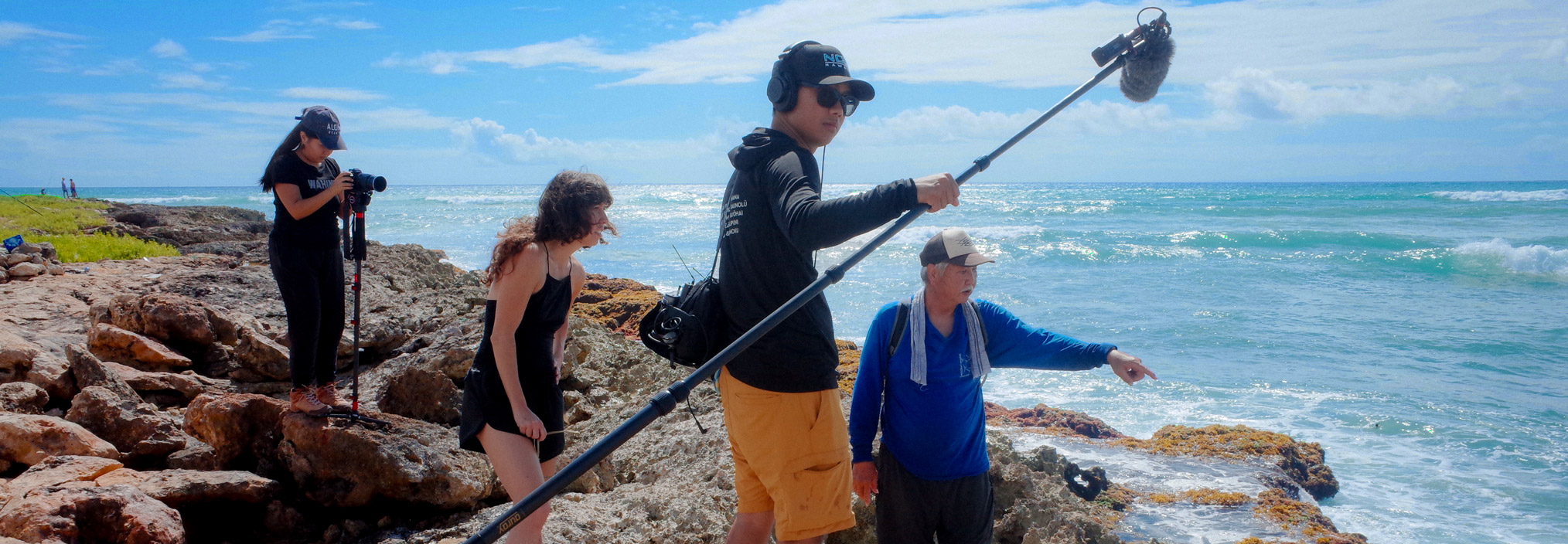For 25 years, Firelight Media has supported documentary filmmakers, helping underrepresented storytellers develop careers.
When Sabaah Folayan traveled to Ferguson, Missouri, in 2014, her initial plan was to help a community traumatized by the police killing Michael Brown. Setting out from New York City with other young activists, she intended to set up job fairs and food kitchens and join demonstrations.
Instead, she and a Columbia University classmate with a camera realized that an urgent story needed telling. The story would give context to the protest movement in Ferguson and its relationship to the larger struggle for Black liberation in the face of historical and structural discrimination.
“Immediately we saw there was a story that wasn't being told,” Folayan said. “So we just started gathering footage without really any clear plan for where it would end up.”
“Immediately we saw there was a story that wasn't being told, so we just started gathering footage without really any clear plan for where it would end up.”
That footage ended up becoming Whose Streets?, an award-winning documentary film screened at the Sundance Film Festival and released in theaters. Its success is all the more remarkable because Folayan, a year out of premed studies in college, had no filmmaking background.
A collaborator who became a producer on the project led her to Firelight Media, a nonprofit organization which helps documentary filmmakers of color and other underrepresented communities build their careers, with a particular interest in emerging talent like Folayan.
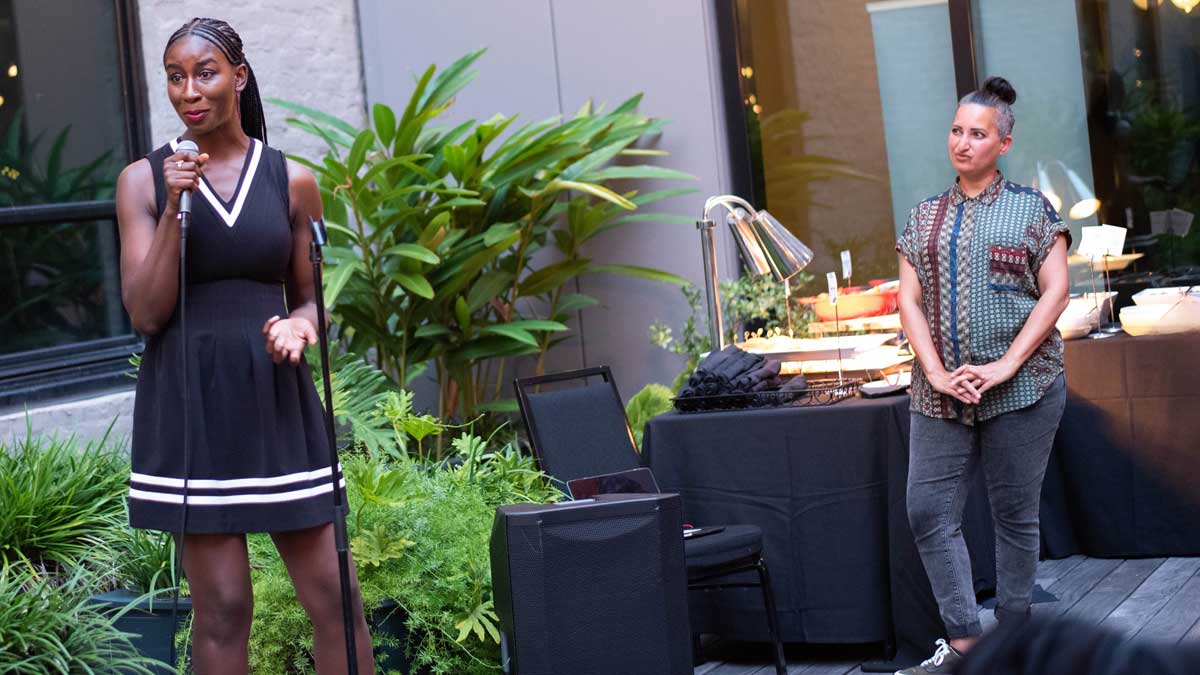
Firelight Media provided a grant to a team including first-time filmmaker Sabaah Folayan (left) to make Whose Streets?, an award-winning documentary. Credit: Camille Barnett
Firelight awarded a grant to her and a filmmaking team that formed in what Folayan called “a unique and organic way”—her classmate Lucas Alvarado-Farrar, who became the film’s cinematographer; and St. Louis visual artist and musician Damon Davis, who became co-director. Through Firelight’s Documentary Lab, they had access to advanced training, as well as mentorship and networking with industry professionals, including from HBO and Netflix.
“It was like a film boot camp for us, and we learned what it took to make a film, what it took to get a film distributed,” said Folayan, who went on to become interim director of the Documentary Lab. “I don't see us having made that movie without [Firelight’s] support.”
Leveraging a Network
Firelight, celebrating its 25th anniversary in 2025, was founded by husband-and-wife filmmakers Marcia Smith and MacArthur Fellow Stanley Nelson, initially as a network to build support for themselves.
“Then the question became, how do we pass along what we're learning and our experience to other people?” Smith said. “How do we build a platform for other people to be able to sustain themselves while they make documentary film?”
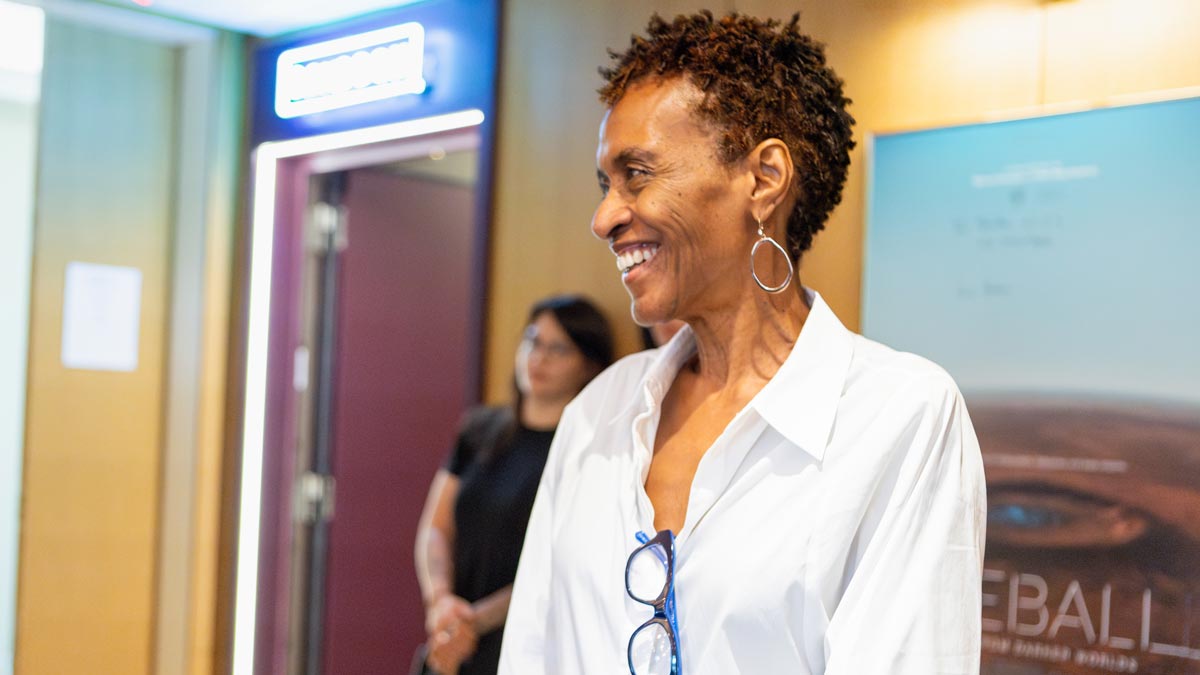
Marcia Smith established Firelight Media in 2000 with her husband Stanley Nelson. Credit: Joshua Christie
Firelight’s oldest and best-known program is its Documentary Lab, an 18-month fellowship that includes a $25,000 project grant for filmmakers producing their first or second feature.
Besides financial support and technical assistance, Firelight’s signature feature is its community of artists, including hundreds of program alumni, offering filmmakers mentorship and feedback.
Firelight’s programs have supported more than 250 filmmakers, for whom Firelight remains a lifelong network of collaborators and industry connections.
Firelight’s programs have supported more than 250 filmmakers, for whom Firelight remains a lifelong network of collaborators and industry connections. Over the years, Firelight has leveraged that network to provide opportunities and resources to documentary filmmakers by forming partnerships with prominent public media programs and organizations. Those collaborations include the FRONTLINE/Firelight Fellowship for investigative documentary filmmaking, and the In the Making documentary short film series, produced in partnership with WNET's AMERICAN MASTERS.
The Firelight network is breaking down barriers for Black people, Indigenous people, and people of color (BIPOC) who are filmmakers. Those barriers start with film school.
“BIPOC producers have a history of learning the craft, not in film school, but from community media organizations,” Smith said. “These organizations started to help people tell real stories related to their communities and to the struggle for social justice in the ’70s.”
Important, Lesser Told Stories
In addition to teaching the craft, Firelight’s programs introduce artists to the world of philanthropy and guide them on accessing grant funding.
That work has become especially urgent amid sweeping funding cuts, existential threats to public television, and the narrowing of a film market increasingly focused on profit.
“What that has meant is a lot more celebrity documentaries, a lot of true crime, and a lot of scandals and salacious topics,” Smith said, “leaving a lot less room for history or social issue documentaries.”
In that environment, underrepresented creators continue to be seen as risky investments and their stories as marginal, she added.
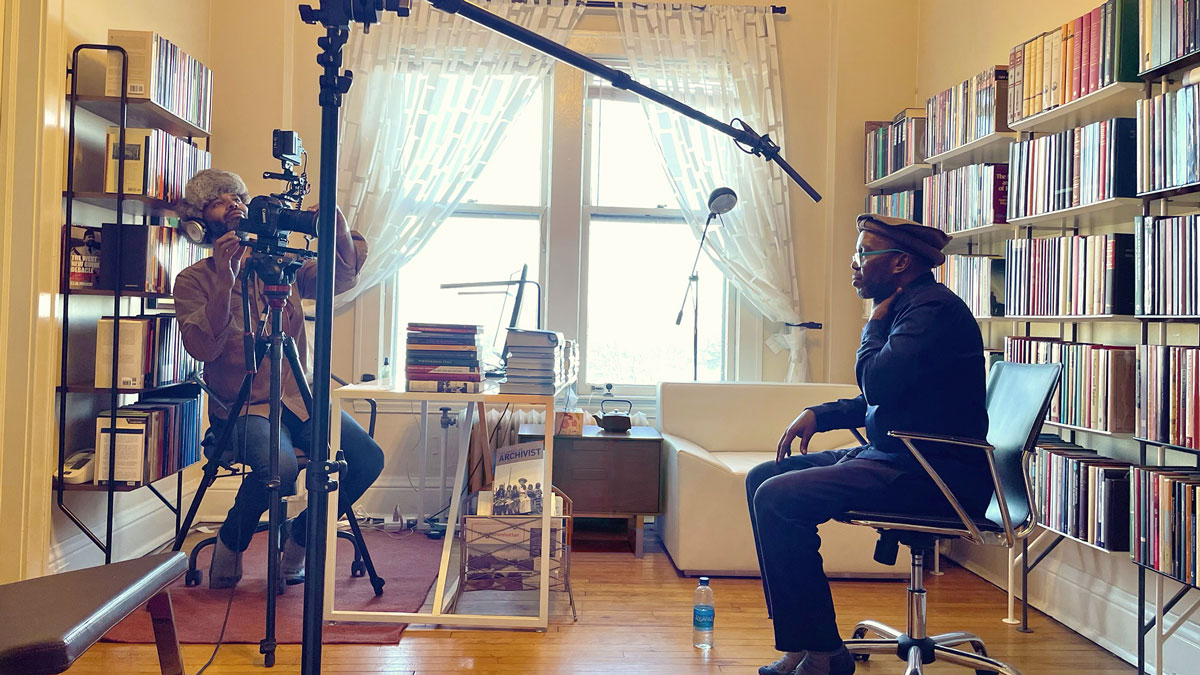
Silsilad part of Firelight’s HOMEGROWN: Future Visions series for PBS, tells the story of the nation’s first Somali-American art center, in Minneapolis. Credit: Tariq Tarey
It may be difficult to quantify what the public is missing by not seeing more of their films, but Smith pointed to the power of documentary to preserve history, shape public perception and undo harmful stereotypes. And she noted the impact of films she has written with Nelson.
Their 2003 documentary, The Murder of Emmett Till, for instance, uncovered new witness testimony and inspired viewers to write letters to the Justice Department demanding it reopen the case, which it did in 2018, more than 60 years after the Chicago teenager’s killing in Mississippi.
Following its founders’ lead, Firelight-supported filmmakers are elevating important, lesser-told stories.
Since his diagnosis with primary progressive multiple sclerosis at age 25, Jason DaSilva has focused his filmmaking on the lives of people with disabilities—including his own in the 2013 film When I Walk. One of the first filmmakers to receive Firelight support, DaSilva remembered Nelson coming to his house, where for hours they went frame-by-frame through the film, shot over seven years.
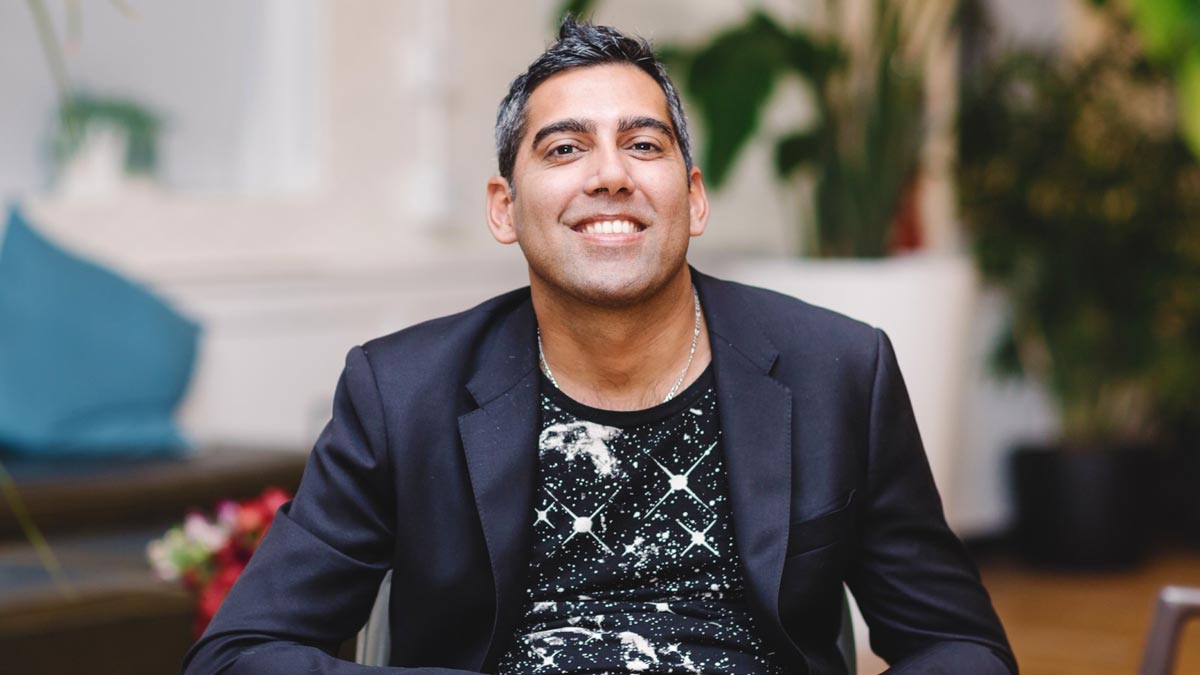
Jason DaSilva received Firelight support to make When I Walk, an autobiographical film about living with multiple sclerosis. Credit Jason DaSilva
“He really took me under his wing and showed me the ropes of documentary filmmaking,” DaSilva said of Nelson. “That was really invaluable for me.”
After seeing no one like himself on the film festival circuit, DaSilva formed his own organization, AXS Film Fund, which supports filmmakers with disabilities, particularly from underserved or underrepresented communities.
He receives so many email messages from disabled viewers expressing gratitude for his films that he needs an assistant to help answer them.
“It’s really important to tell those stories,” he said.
Courage for the Future
This year, longtime Firelight consultant and staff member Loira Limbal, an award-winning artist, takes over for Smith as President and CEO.
Limbal said her priorities, at a time of unprecedented challenges for the field, will be to continue “championing filmmakers whose work illuminates our present, preserves our past, and expands the possibilities for our collective future.”
“Fight for the stories and storytellers we need to hear. Fight for filmmakers with bold visions and the stories we’ve never seen.”
In her acceptance speech in November for a Lifetime Achievement Award from the DOC NYC festival, Smith warned of the tough road ahead. She urged those with the power to decide what stories get funded to be courageous.
“Fight for the stories and storytellers we need to hear,” she told the audience. “Fight for filmmakers with bold visions and the stories we’ve never seen.”
Since 2001, MacArthur has provided $8.6 million of support to Firelight Media for general operations, new digital storytelling, professional development, community engagement, communications strategies, and other efforts.



